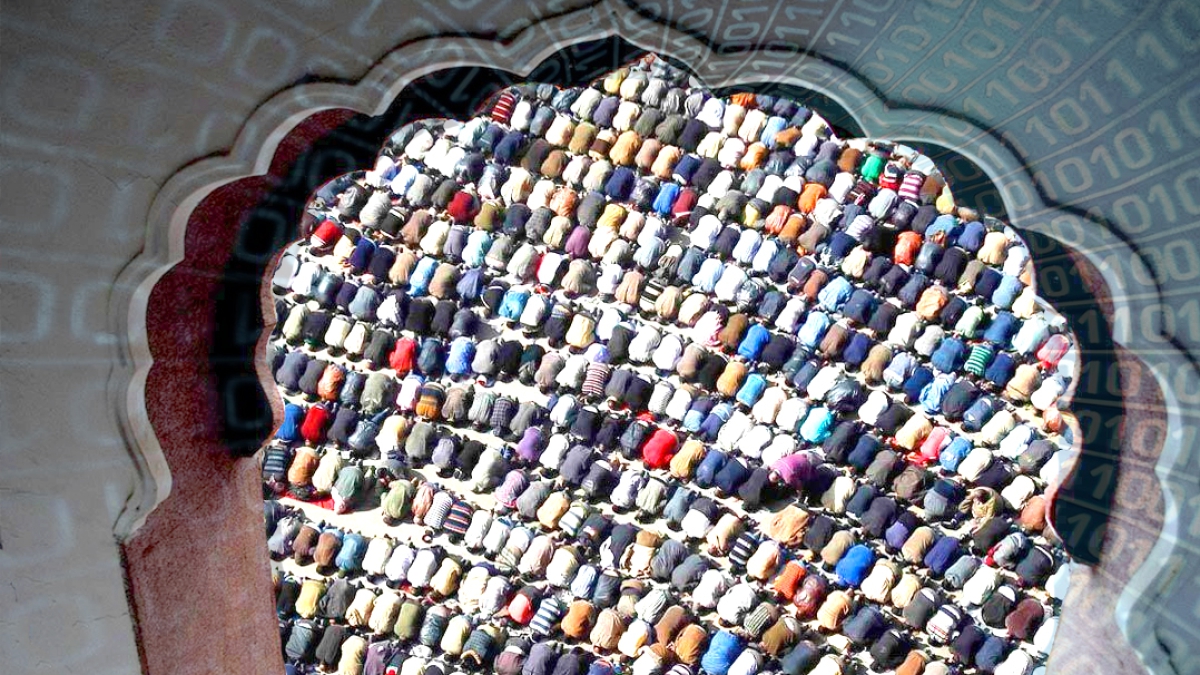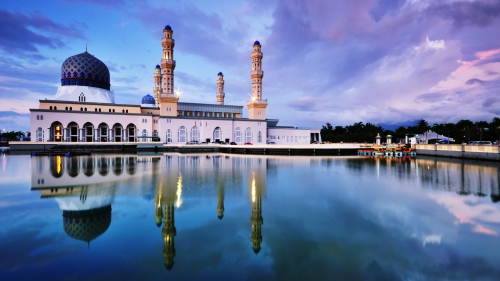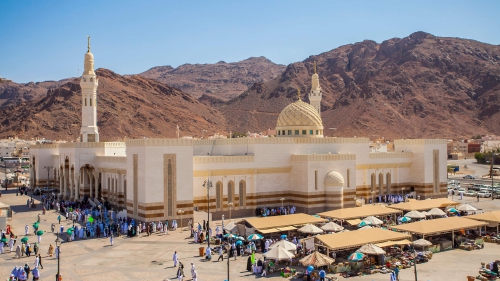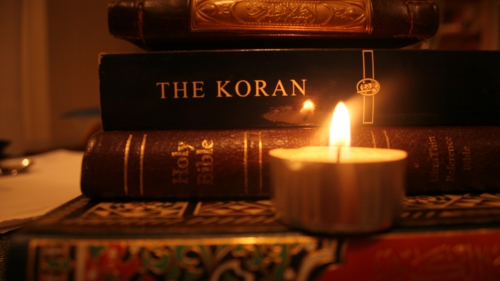Ramadan – Time to Unplug From the Matrix

The month of Ramadan provides us with a perfect opportunity to unplug from the Matrix and rediscover our singular source of divine guidance. Those who fast do have to unplug from their daily physical routine anyway. Let this then provide an incentive to try to unplug from the Matrix as our Prophet ﷺ and the Sahaba (R) did more than 1400 years ago.
This is the month in which the Prophet ﷺ and his companions fought for their own survival, and more importantly for the survival of Islam. The future of Islam was at stake in the first Ramadan on the battlefield of Badr. Islam is going through a similar crisis now and this Sunnah of the Prophet ﷺ demands our attention.
Millions of Muslims throughout the world continue to be killed, raped, tortured, humiliated, persecuted and dehumanized. The way things are developing right now, we do not seem that far from the Jaahiliyya (ignorance) that existed in the world before the time of the Prophet ﷺ.
This is also the month in which the Prophet ﷺ and his companions re-entered Mecca as victors after eight years of refuge in Medina where they faced one military attack after another from the Kuffar and the Mushrikun (unbelievers and idol worshipers) of Mecca and their allies.
This is the month in which the Ultimate Book of Allah began to be revealed to Prophet Muhammad ﷺ; this is the month of the Night of Power (Laila-tul-Qadr), which is better than a thousand months (Qur'an 97:1-3).
This is the month where we learn the value of self-restraint and seek to purify our souls. This is the month for prayer and fasting. This is the month for glorifying Allah and for being grateful to Allah for all of our blessings but most especially for expressing our gratitude to Allah for sending His ultimate guidance, the Qur’an, to humanity.
That is why Ramadan was meant to be a month of fasting, introspection, soul searching and remembering Allah with passion and intensity reminiscent of the companions of the Prophet ﷺ. It was meant to be an occasion for believers to go through a yearly, month long intensive training exercise of hardship and self-restraint. Ramadan is a time of spiritual purification and commitment to Allah.
It is a time to learn discipline and the patience essential to Islam so that we are able not only to proclaim but also to establish the greatness and sovereignty of Allah in the world by facing bravely any challenges that might come our way. That is how the Prophet ﷺ and his companions and the rightly guided Khalifas practiced Ramadan. And the results speak for themselves. Ramadan was never meant to be a few extra rituals and a short cut to heaven.
But even as ritual, Ramadan has become a burden on many Muslims. Many find it hard to fast. Some do find value in it for its health benefits while others have turned it into an occasion for feasting. While a billion poor Muslims live under what amounts to a yearlong fast, millions of others live under what amounts to a yearlong feast. How can people with this inclination establish the greatness of Allah? How can the Allahu Akbar of the indulgent have value in the sight of Allah?
We always do best when we go back to the Prophet ﷺ and Sahaaba (R) and seek our inspiration from their example. We must look to what they were able to accomplish during Ramadan and follow in their footsteps. It is our responsibility to try to root out the causes of suffering for Muslims throughout the world and strive as early Muslims did to establish a consilience community-based institution for the benefit of all. It is difficult to follow the example of the Prophet ﷺ in doing what he actually did do to change the world, and yet so easy for us to just sit back and praise him?
Yet, we must not be deterred. Allah does not need our empty praises. It is our solid actions that are essential to a genuine and vital Islam in the world. What do you think glorifies Allah more, our words of Takbir or our mindful actions to establish His Takbir in the world? Ramadan, in fact, was meant for Muslims to go through a program of training and exercise to be able to do just that.
We were not to just do rituals and “finish” Ramadan as a means to earning reward in the Hereafter; and then carry on business as usual for the rest of the year. The training of Ramadan was meant to be training so that we’d realize and renew our commitment to strive for the values of life set forth in the Qur’an, every day of the year.
What our Prophet ﷺ and his companions accomplished in 10 Ramadans and what the rightly guided Khalifas and their companions accomplished in 40 Ramadans, we have not even been able to maintain. In fact, we have squandered their accomplishments, altogether - despite practicing well over 1400 Ramadans since that time. What kind of Ramadan are we then practicing?
Another Ramadan has now come and as with the first Ramadan, the future of Islam is still at stake. Consider the immensity of our gift in The Divine Message of the Qur’an and seek to understand that this pristine message, in its entirety, far outshines and is far elevated above the interpretations and musings applied to our sacred text by mere men.
To understand this is to reassert Islam’s authentic universality and equity. To understand this is to see that action is necessary to come to the aid of the many Muslims who suffer underneath the false Matrix that exists in the name of Islam. To understand this is to begin the process of unplugging from the Matrix. Go forth then with courage and a pure heart. And, may the blessings of Allah be with us all.
Topics: History, Islamic Revival, Ramadan
Views:6747
Related Suggestions

















